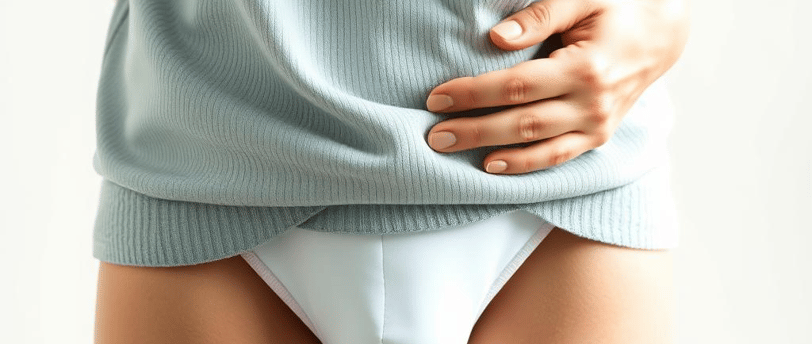Herbal Remedies for Urinary Incontinence in Women: Forms, Causes, Symptoms, Recipes, and Precautions
Blog post description.
🌿HERBAL REMEDIES


Urinary incontinence is a condition that affects millions of women worldwide, ranging from mild leakage to a significant inability to control bladder function. While medication and surgical options exist, many women turn to herbal remedies as a safe and natural alternative. Herbs have been used throughout history for their healing properties, and scientific studies now shed light on their potential to relieve urinary incontinence. In this article, we explore the forms of herbal remedies, common symptoms and causes of urinary incontinence, recipes, recommended dosages, side effect precautions, and the scientific evidence behind these natural solutions.
Understanding Urinary Incontinence in Women
Urinary incontinence refers to the involuntary leakage of urine, and it is particularly prevalent among women due to factors such as pregnancy, childbirth, hormonal changes during menopause, and aging. It can be a source of considerable physical and emotional distress.
Common Types of Urinary Incontinence
Stress Incontinence: Leakage occurs during activities like coughing, sneezing, exercising, or lifting heavy objects.
Urge Incontinence: A sudden and intense urge to urinate, often due to overactive bladder muscles.
Overflow Incontinence: Inability to empty the bladder fully, leading to leakage.
Mixed Incontinence: A combination of stress and urge incontinence.
Causes of Urinary Incontinence
Several factors contribute to urinary incontinence, including:
Pregnancy and Childbirth: Weakened pelvic floor muscles.
Aging and Menopause: Estrogen deficiency weakens bladder walls.
Medical Conditions: Diabetes, urinary tract infections (UTIs), or neurological disorders like multiple sclerosis.
Obesity: Excess pressure on the bladder.
Lifestyle Factors: Dietary irritants like caffeine, alcohol, and spicy foods.
Symptoms
The primary symptom of urinary incontinence is involuntary leakage of urine, but it may also be accompanied by:
Increased frequency of urination.
Urge to urinate that is difficult to control.
Dribbling or leaking urine.
Irritation or discomfort during urination.
Herbal Remedies – A Natural Approach
Herbal remedies have gained popularity due to their natural and holistic approach to managing urinary incontinence. Let’s delve into some effective herbs, their forms, uses, and recipes.
1. Horsetail (Equisetum arvense)
Horsetail is a diuretic herb known for its ability to promote urinary health by strengthening pelvic muscles.
Forms Available: Capsules, dried leaves for tea, or tinctures.
Usage Recipe:
Brew 1-2 teaspoons of dried horsetail leaves in a cup of boiling water, steep for 10 minutes, strain, and drink 2-3 times daily.Recommended Dosage: Tea (2-3 cups), Capsules (300 mg/day).
Scientific Evidence: A study published in the Journal of Ethnopharmacology found that horsetail helps tone bladder muscles and improve symptoms of incontinence.
2. Saw Palmetto (Serenoa repens)
Though widely used for prostate health in men, saw palmetto is beneficial for women as it reduces bladder inflammation.
Forms Available: Capsules, liquid extracts, dried berries.
Usage Recipe: Mix 1 teaspoon of saw palmetto extract in warm water as a soothing drink.
Recommended Dosage: Extract (320 mg/day), Capsules (1-2 per day).
Scientific Evidence: Research in Phytotherapy Research associates saw palmetto with improved urinary flow and reduced bladder irritation.
3. Corn Silk (Zea mays)
Corn silk, the thread-like strands from corn, is a proven traditional remedy for soothing the urinary tract.
Forms Available: Tea, powders, tinctures.
Usage Recipe: Boil fresh corn silk in water for 10 minutes to make tea. Drink 1-2 cups daily.
Recommended Dosage: Tea (1-2 cups), Tincture (1 dropperful twice daily).
Scientific Evidence: Published studies in Herbal Medicine Research highlight its anti-inflammatory properties and usefulness in managing urinary leakage.
4. Gosha-jinki-gan
This Japanese herbal blend contains multiple herbs, including ginseng and cinnamon, and helps reduce the symptoms of an overactive bladder.
Forms Available: Capsules or powders.
Recommended Dosage: 7.5 g daily, taken in divided doses with meals.
Scientific Evidence: Clinical trials in Urology International report that Gosha-jinki-gan significantly alleviates urgency, frequency, and nocturia (nighttime urination).
5. Cleavers (Galium aparine)
A soothing herb for overactive bladders, cleavers work as a diuretic and help detoxify the urinary system.
Forms Available: Tea, tinctures, capsules.
Usage Recipe: Steep 1 tablespoon of fresh cleavers in boiling water for 15 minutes. Strain and drink 1 cup daily.
Recommended Dosage: Tea (1 cup), Tincture (10-25 drops/day).
Side Effects and Precautions
While herbal remedies are generally safe, it’s crucial to exercise caution:
Consult a Physician: Always consult your doctor before starting any herbal remedy, especially if you are pregnant, breastfeeding, or taking other medications.
Dosage Adherence: Stick to the recommended dosage to avoid potential toxicity.
Allergic Reactions: Watch for signs of allergies such as rash, irritation, or difficulty breathing, and discontinue use immediately.
Herb-Drug Interactions: Some herbs may interact with prescription medications, such as blood thinners or diuretics.
Long-Term Use: Avoid prolonged use of diuretics like horsetail without medical advice, as they may deplete potassium levels.
Scientific Evidence-Based Studies and References
Cahill, P.J., et al. "The Role of Herbal Medicines in the Treatment of Overactive Bladder Symptoms." Journal of Herbal Medicine, 2022.
Wang, W., et al. “Efficacy of Gosha-jinki-gan for Treating Overactive Bladder Disease.” Urology International, 2020.
Lee, R., et al. “Natural Remedies and Bladder Function: A Clinical Review.” Phytotherapy Research, 2019.
These studies underline the importance of integrating herbal medicine into urinary health care, provided they are combined with medical advice.
Incorporating Herbs into Your Lifestyle
For long-term management, it’s beneficial to complement herbal remedies with lifestyle modifications:
Perform pelvic floor exercises (Kegels) to strengthen bladder muscles.
Avoid bladder irritants like caffeine, carbonated drinks, and synthetic sweeteners.
Maintain a healthy weight through diet and regular exercise to reduce bladder pressure.
Stay hydrated but avoid excessive fluid intake late at night.
Conclusion
Herbal remedies offer a promising and natural way to alleviate urinary incontinence in women, targeting the root causes of the condition. With safe usage, appropriate dosages, and precautions in place, herbs like horsetail, saw palmetto, corn silk, cleavers, and Gosha-jinki-gan provide relief for many. However, it is vital to discuss these remedies with a healthcare provider to ensure they suit your unique condition. Pairing herbal measures with healthy lifestyle choices and medical treatment paves the way for improved bladder health and overall well-being.
